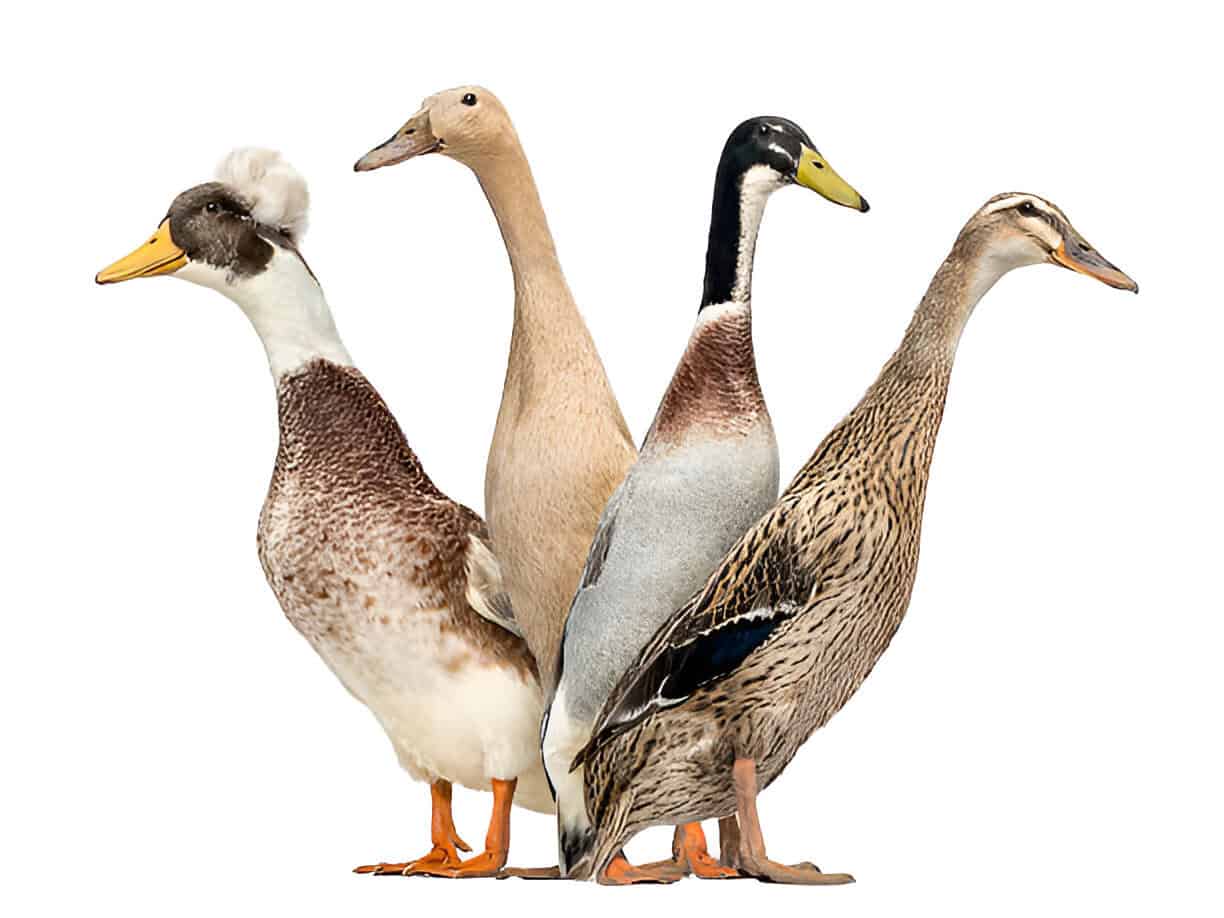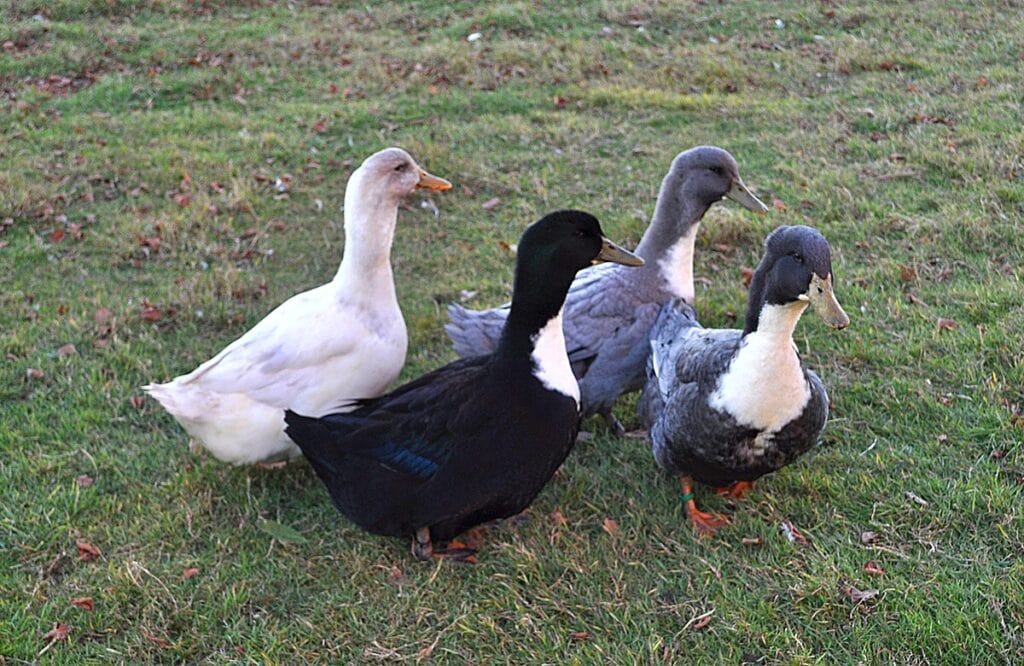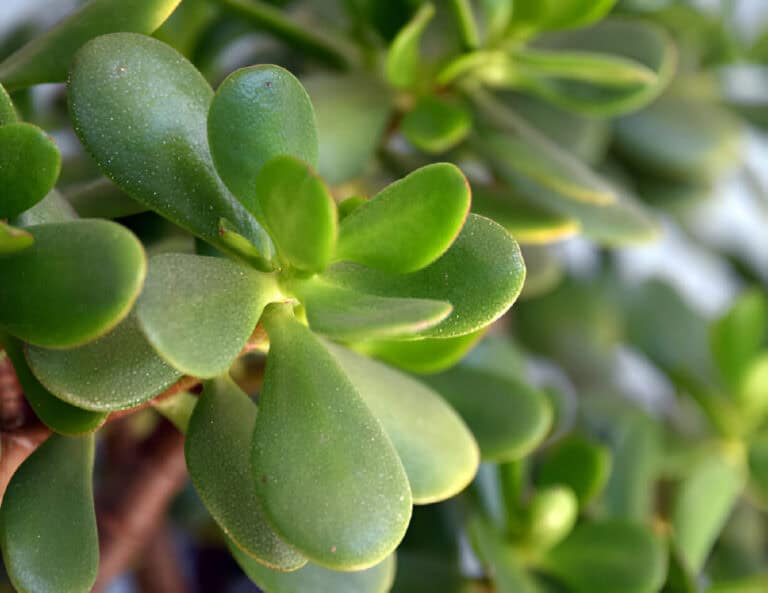Will Ducks Mate Across Different Breeds? Duck Dating 101

When I first brought ducks into my backyard flock, I didn’t know what to expect. I figured they’d waddle around, splash in their kiddie pool, and maybe lay an egg or two. What I didn’t see coming? The duck drama—romantic entanglements, squabbles over mates, and yes, a little bit of cross-breed chemistry. Let’s just say duck dating makes a high school cafeteria look calm.
If you’ve ever watched a Muscovy flirt with a Khaki Campbell or a Pekin get cozy with a Mallard, you’re probably asking: Will ducks really mate across different breeds? And if they do, what does that mean for your homestead or backyard setup?
Let’s unpack the quacks and facts.
Birds of a Feather… Might Not Always Stick Together
Ducks don’t follow our rules. They don’t swipe left or right based on breed. For them, love—or at least mating—is often a matter of opportunity, availability, and good old duck instincts.
Here’s what I’ve noticed in my own flock:
- Drakes (male ducks) aren’t picky. If there’s a female duck around—any breed—they’ll often pursue her.
- Hens (female ducks) can be choosier, but they still form bonds with drakes of other breeds.
- Mixed pairings happen naturally when different breeds are raised together, especially from duckling age.
So yes, ducks will mate across different breeds. But whether or not that’s a good idea depends on a few things.
Breed Compatibility and Fertility

Let’s talk turkey—uh, I mean ducks. Not all cross-breed matings are created equal. Some combos result in fertile eggs and healthy ducklings. Others? Not so much.
| Duck Breed Combo | Will They Mate? | Fertile Eggs? | Viable Offspring? | Notes |
| Pekin + Mallard | Yes | Yes | Yes | Offspring are often hardy. |
| Muscovy + Pekin | Yes | Sometimes | Mostly sterile | Called “mules,” like in donkeys. |
| Khaki Campbell + Rouen | Yes | Yes | Yes | Common pairing in mixed flocks. |
| Muscovy + Muscovy | Yes | Yes | Yes | Best for Muscovy breeding. |
| Mallard + Indian Runner | Yes | Yes | Yes | Ducklings may have varied traits. |
Cross-breeding can create hybrid ducks with unique personalities and plumage. But it’s not always rainbows and ducklings.
When the Pond Turns Into a Soap Opera
One summer, I had a bold Muscovy drake who acted like he ruled the backyard. He courted every hen in sight, from Runners to Campbells. At first, I thought, “Wow, look at him go.” But it didn’t take long before things got out of hand. He bullied smaller ducks, hogged the pool, and made the hens miserable.
This taught me a valuable lesson: size matters. Some breeds, like Muscovies and Pekins, are much larger and stronger than lighter breeds like Calls or Runners. If the size gap’s too wide, the smaller duck can get injured during mating.
Here’s a quick compatibility guide:
| Large Breed Drakes | Safe Pairings | Avoid Pairing With |
| Muscovy | Muscovy, Pekin, Rouen | Call Ducks, Indian Runners |
| Pekin | Pekin, Rouen, Khaki Campbell | Call Ducks |
| Rouen | Pekin, Khaki Campbell, Mallard | Call Ducks |
You want to match ducks that can keep up with each other—not just in love, but in life.
What Happens to the Offspring?
Let’s say your Pekin and Mallard pair up. What next? Will you get ducklings? Probably. Will they be cute? Definitely. But will they be predictable? Not at all.
Mixed-breed ducklings often inherit traits from both parents:
- Color patterns might be unpredictable.
- Egg-laying ability could improve or decline.
- Personalities can be wild cards—some hybrids are chill, others are bossy.
And if you’ve got a Muscovy cross? Those “mule ducks” can’t reproduce. They’re usually raised for meat and don’t lay eggs. So, before you let your ducks play matchmaker, think about your long-term goals.
To Mix or Not to Mix: Pros and Cons
Here’s what I’ve learned over the years of duck dating experiments when mixing duck flocks together:
Pros of Cross-Breeding Ducks:
- Unique ducklings with varied looks.
- Might combine the best traits (hardiness + egg-laying).
- Fun and educational for homesteaders and families.
Cons of Cross-Breeding Ducks:
- Unpredictable traits.
- Some hybrids are sterile.
- Size mismatches can cause injuries.
- Breeding for show or purity, becomes difficult.
How to Manage Mixed Flocks
If you want to give your ducks some dating freedom but avoid chaos, try these tips:
- House similar sizes together. It helps prevent injuries and bullying.
- Limit drakes. Too many males = stress for females.
- Separate breeding pens. If you want to control which duck mates with whom, use temporary enclosures during mating season.
- Mark your eggs. Use a pencil to label which eggs came from which hen if you’re collecting for hatching.
Duck Mating Myths and Misconceptions
Duck mating behavior can be surprising, even confusing, to new flock owners. One common myth is that duck pairs bond for life, like swans. While some ducks do form strong seasonal bonds, most males will attempt to mate with multiple females—and not always gently. This confusion can lead to the false idea that aggressive behavior is “normal” or acceptable.
Another misunderstanding is that female ducks choose their mates based purely on appearance. In reality, mating preferences are influenced by factors like health, social rank, and even past experiences within the flock.
Let’s break down a few common myths:
| Myth | Truth |
| Ducks mate for life | Most ducks form seasonal bonds, not lifelong ones |
| Aggression means dominance | Excessive aggression can signal imbalance or stress |
| Females always accept mating | Females will resist unwanted advances |
Understanding these behaviors helps keep your flock healthier and your drakes in check.
Final Quack: Love Knows No Breed
At the end of the day, ducks don’t care what label we slap on them. They care about comfort, companionship, and who shares their water bowl. Sure, cross-breeding comes with some pros and cons, but if your flock is happy and healthy, you’re doing something right.
Would I let my ducks mix again? Absolutely—with a few guardrails in place. Duck love might look a little chaotic, but it’s also part of what makes raising them so endlessly entertaining.
So next time you see a Pekin flirting with a Mallard, just nod, smile, and think: Duck dating, baby—it’s complicated.






